In this article…
- Pet Boarding Preparation at a Glance
- Why Does Preparation Matter for Pet Boarding?
- When Should I Start Preparing My Pet for Boarding?
- What Should I Pack for Pet Boarding?
- Health and Safety Checks Before Boarding
- How Can I Help My Pet Adjust Before Boarding?
- Stress-Free Boarding with Dolittles
- Final Checklist Before You Leave
- Conclusion
- Pet Boarding Preparation FAQs
Pet Boarding Preparation at a Glance
If this is your first time boarding your pet, here’s the short version:
- Book early
- Check the vaccine list
- Run a trial before the big stay
Booking around three weeks before boarding is ideal to help you prepare accordingly.
Of course, this isn’t always possible, and our pet retreats always try to accommodate bookings if your plans change at the last minute.
Why Does Preparation Matter for Pet Boarding?
Preparing your pet for boarding gets the process off to a positive start. A little preparation helps your pet settle quickly into their new home away from home.
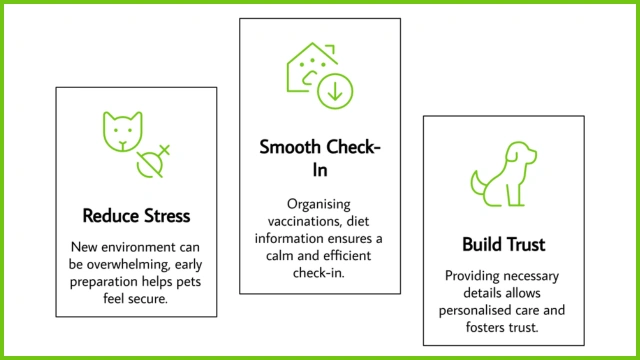
Reducing Stress for Pets and Owners
Even the most confident pets can feel unsettled when away from home. New smells, sounds, faces can be overwhelming (especially for first-time boarders). Preparing early helps your pet feel secure and confident before arrival.
Simple steps, such as…
- Maintaining routines
- Packing comfort items
- Visiting facilities beforehand
…can help reduce anxiety.
The more familiar your pet is with the environment, the faster they’ll settle. You can then enjoy your time away, knowing they’re relaxed and content.
Ensuring a Smooth Check-In Process
Preparation also helps make check-in day calm and efficient. Organising your pet’s vaccinations, diet information, and belongings means there’s less to worry about at drop-off.
Pets are incredibly perceptive. If you’re rushed or anxious, they’ll sense it too.
When owners arrive well-prepared, it speeds up the check-in process. Your pet can settle comfortably in their suite faster.
A smooth handover helps create a positive first impression for your pet and sets the tone for the rest of their stay.
Building Trust with Your Chosen Retreat
Preparing your pet builds mutual trust between you, your pet, and the team caring for them. Receiving all the necessary details (from feeding schedules to medication routines) allows us to provide truly personalised care.
At Dolittles, we believe trust is at the heart of every pet boarding experience. The more we know about your pet, the better we can mirror their home routine while you’re away.
Proper preparation is all about maintaining routine as much as possible. This prioritises your pet’s wellbeing and also reduces your stress when travelling.
When Should I Start Preparing My Pet for Boarding?
Every pet adjusts differently to change. So giving them time to become comfortable with the idea of boarding is key.
Starting preparation early helps your pet ease into new routines and ensures you have everything organised before check-in day.
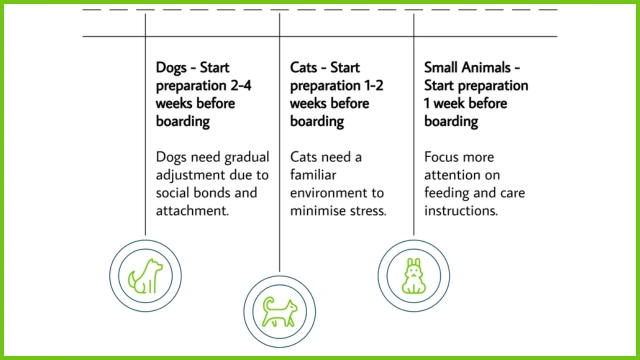
Timeline for Dogs (2–4 Weeks Before)
Dogs are highly social and often form deep bonds with their owners. Of course, this can make separation challenging, especially for first-time boarders.
Starting preparation two to four weeks in advance gives your dog plenty of time to adjust gradually.
Here’s how you can get started:
- Schedule a vet check-up: Confirm vaccinations and parasite prevention are up to date. Most retreats, including Dolittles, require this for your dog’s safety and the safety of others.
- Maintain consistent routines: Stable feeding, exercise, and bedtime routines make it easier for your dog to transition into our structured daily schedule.
- Introduce short separations: Leave your dog at home for brief periods or with a trusted friend to build confidence and reduce anxiety when you’re not around.
- Book a pre-boarding visit: Bringing your dog to Dolittles for a short visit allows them to explore the environment, meet the team, and start forming positive associations before their stay.
By the time boarding day arrives, your dog will be more relaxed, confident, and ready to enjoy their home away from home.
Timeline for Cats (1–2 Weeks Before)
Preparation for cats should focus on creating a familiar environment and comfort. Begin preparing your cat one to two weeks before boarding to minimise stress.
Here are a few simple steps to help your feline friend adjust:
- Introduce their crate early: Leave it open in a quiet area with soft bedding or a familiar blanket so your cat can explore it at their own pace.
- Maintain a calm environment: Cats sense changes in routine, so packing and cleaning early helps avoid last-minute stress.
- Bring familiar scents: When packing for your cat, include their favourite blanket or something that smells like home. These items can provide comfort during their stay.
- Check vaccination and health records: Ensure everything meets the boarding requirements before check-in.
Taking these small steps can help your cat feel secure and confident about boarding.
Small Animals and Special Pets
Small pets such as rabbits, guinea pigs, birds, or reptiles have unique needs. Preparing them for boarding often requires extra care and attention to detail, but starting around one week before boarding should be enough.
Here’s how to make sure they’re ready:
- Confirm boarding suitability: Not all retreats can accommodate small or exotic pets, but Dolittles offers specialised care options for a variety of species.
- Bring familiar housing or accessories: If possible, board them in their usual enclosure or with their own bedding and hideaways. Familiarity helps reduce stress.
- Provide clear feeding and care instructions: Small animals often have specific diets or temperature needs. Sharing detailed notes helps our team maintain their exact routine.
- Schedule an early drop-off if needed: Some smaller pets may take a little longer to settle in, so allowing extra time ensures we can get them comfortable before you leave.
The key to a successful boarding experience lies in preparation and communication. The earlier you begin, the smoother the transition will be for everyone involved.
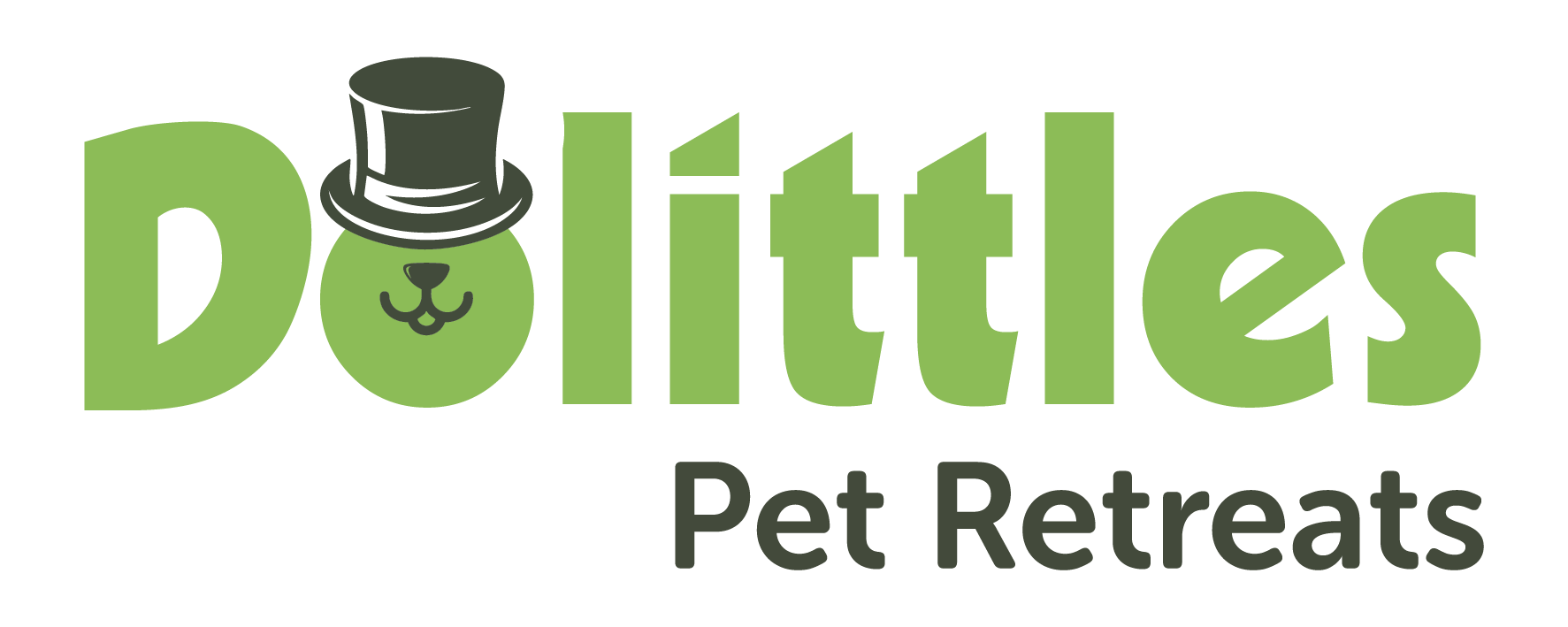
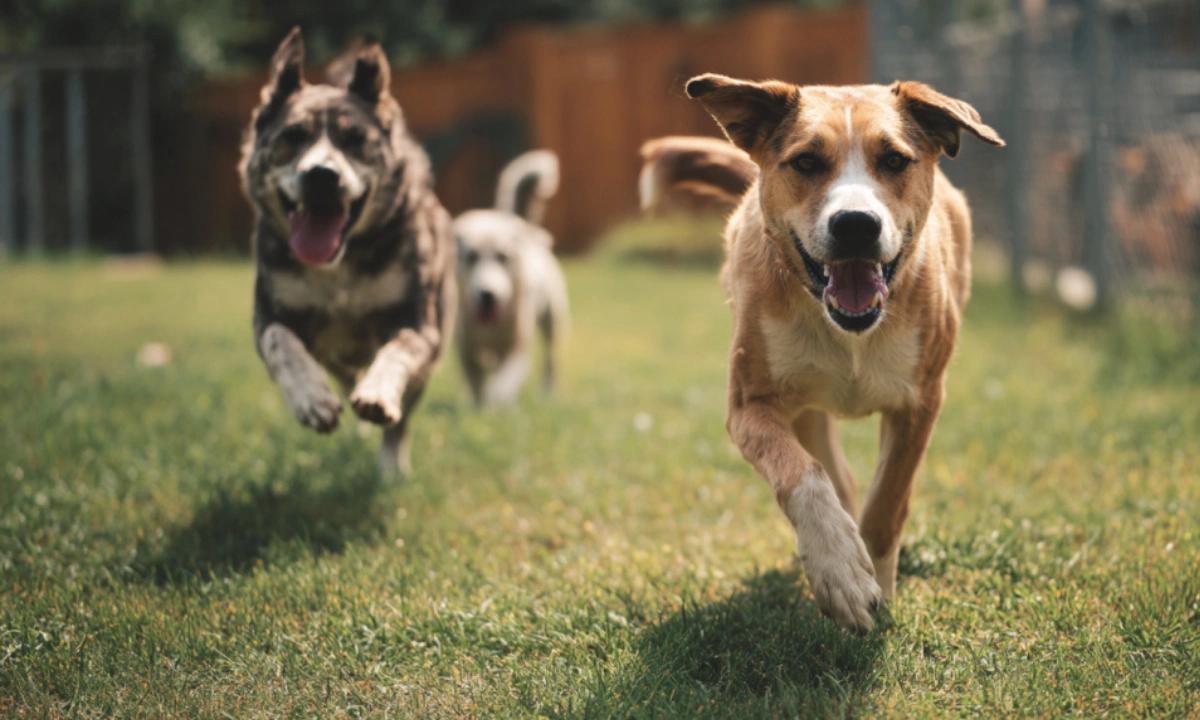
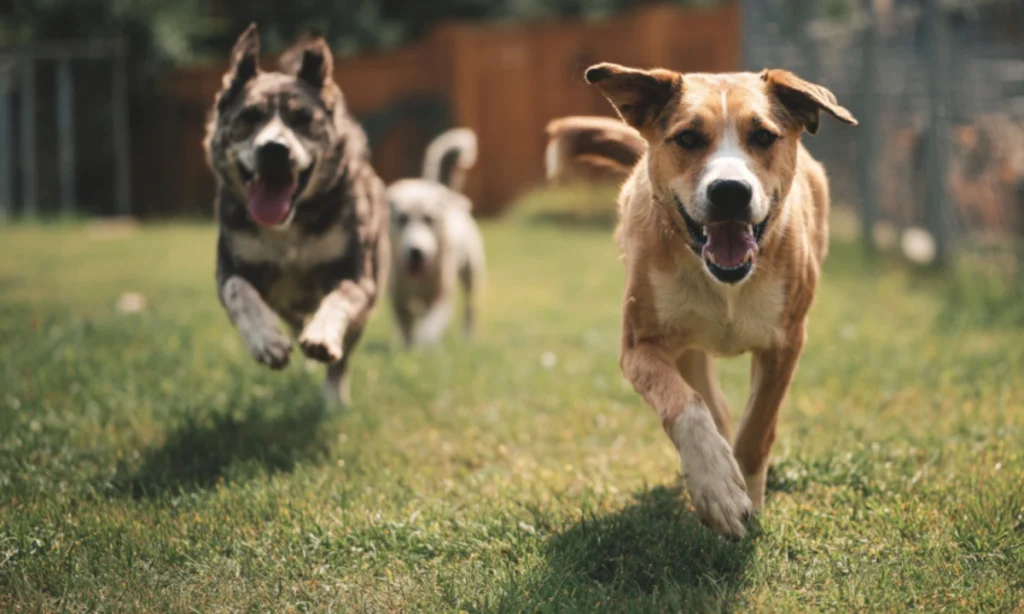
Share this article